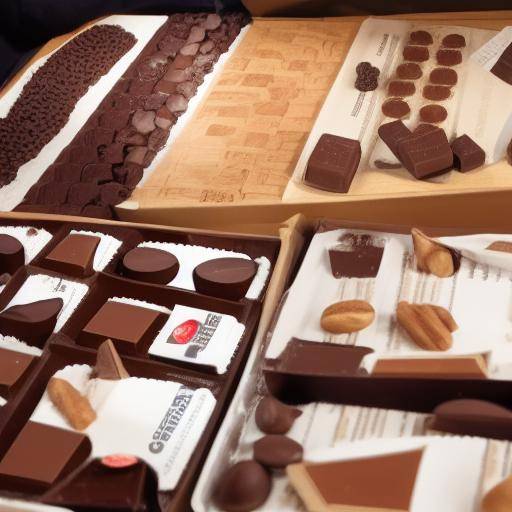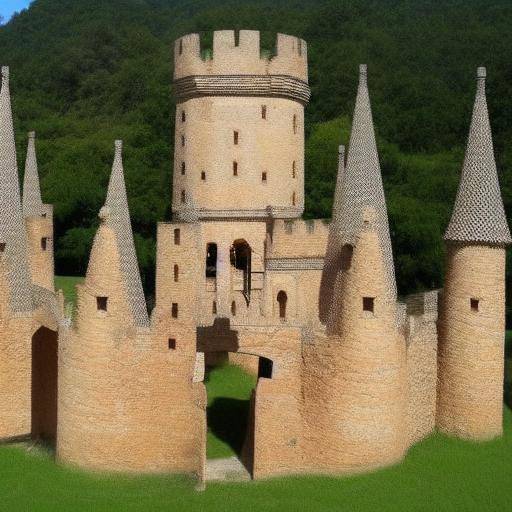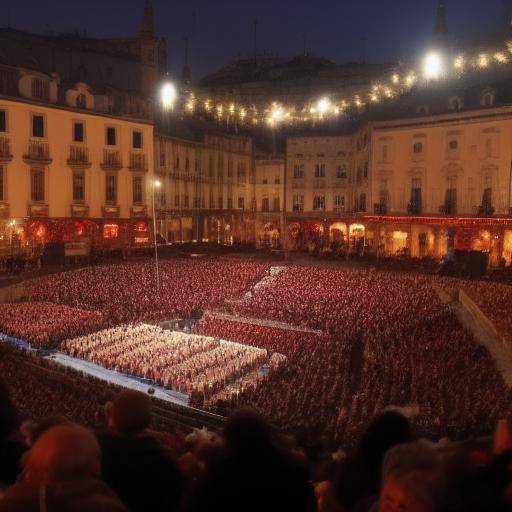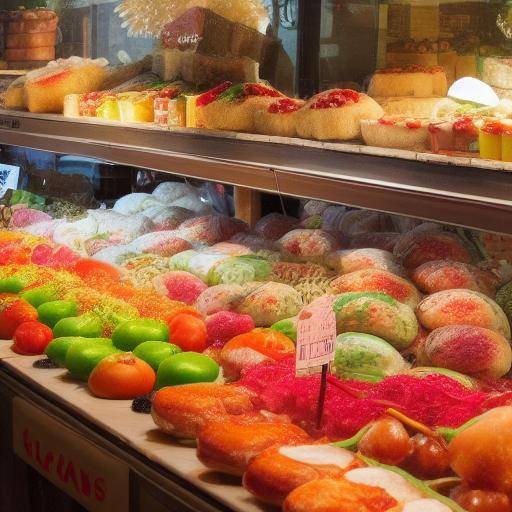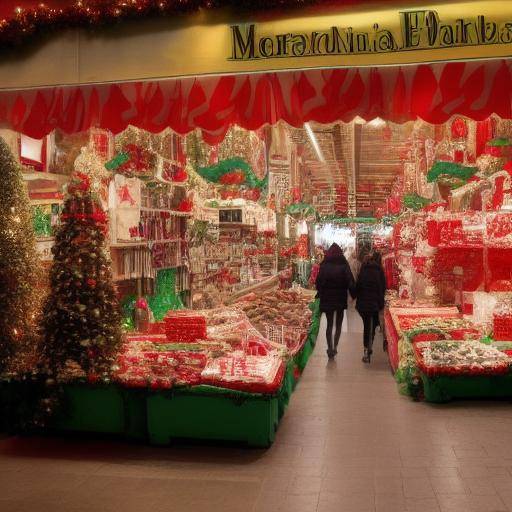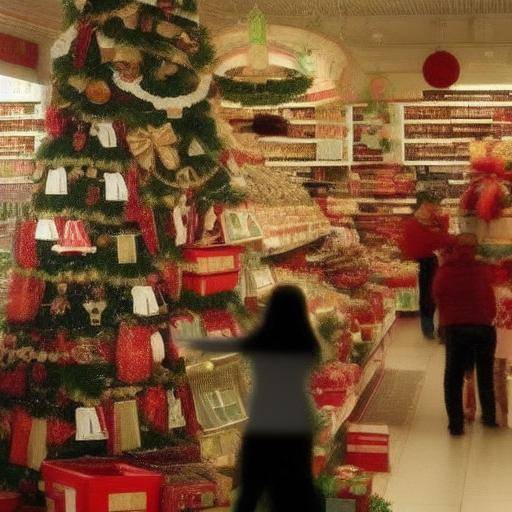
Christmas markets, also known as advent markets, have been a long-standing tradition in Europe. These markets are synonymous with joy, tradition and festiveness, and are an essential part of the celebration of Christmas in many European countries. In this article, we will explore the history of Christmas markets, their evolution over time, the traditions surrounding them and their impact on European culture.
Introduction
Christmas markets have their origins in European medieval markets that used to be held in the city squares during the Advent era. These markets not only offer a wide variety of festive products, such as decorations, gifts and food typical of the season, but also offer locals and visitors the opportunity to immerse themselves in a magical and welcoming atmosphere.
History and Background
Origins of the Christmas Markets
Christmas markets have their roots in the celebration of Advent, the preparation period for Christmas that begins four Sundays before the festive date. It is believed that the first Christmas market was held in the German city of Bautzen in 1384, thus establishing a tradition that spread throughout Europe.
Evolution over time
Over the years, Christmas markets have become an integral part of the celebration of Christmas in Europe. Traditionally, these markets were places where people could supply winter supplies and buy handmade gifts. Over time, they expanded to include a wide range of holiday products and became popular tourist destinations.
Traditions and Customs
Christmas markets not only offer traditional products, but also provide a festive environment that includes music, shows and typical seasonal food. It is common to find posts that sell handmade Christmas ornaments, local crafts, sweets and traditional dishes.
Analysis in Deep
Benefits of Christmas Markets
Christmas markets not only create a festive atmosphere, but also play a crucial role in promoting tourism and local trade. These events contribute significantly to the economy of cities and give local artisans and traders the opportunity to show their products.
Current Challenges and Trends
Despite its popularity, Christmas markets also face challenges in the modern era, such as competition for online trade and sustainability concerns. However, many markets have evolved to integrate sustainable practices and attract a wider audience through thematic events and unique experiences.
Comprehensive review
Applications and Best Practices
Christmas markets have inspired the creation of similar events in other parts of the world, which seek to capture the magical and festive atmosphere characteristic of these celebrations. Some of the best examples of Christmas markets in Europe include the Strasbourg Christmas Market in France, the Vienna Advent Market in Austria and the Nuremberg Christmas Market in Germany.
Comparative analysis
Differences and Similarities between Christmas Markets in Europe
European Christmas markets share the common feature of offering traditional products and a festive atmosphere, but each has its own particularities. For example, the Vienna Advent market stands out for its impressive decoration and focus on craftsmanship, while the Nuremberg Christmas market is known for its annual competition to choose the official "Christkind".
Practical Tips and Accessible Recommendations
How to Enjoy a Christmas Market EuropeThe European Christmas markets offer a unique experience that combines tradition, crafts and gastronomy. If you are planning to visit one of these markets, here are some practical tips to make the most of your experience:
- Plan with Anticipation: Investigate the Christmas markets you would like to visit and plan your itinerary in advance. Some markets close early, so it is important to get on time to enjoy all the attractions.
- Explore Local Gastronomy: Christmas markets are famous for their culinary delights. Do not miss the opportunity to try the typical dishes of the season, such as the Glühwein (spicuous hot wine), Bratwurst (square sausages) and Lebkuchen (Gingerbread).
- Purchase Unique Gifts: Christmas markets are ideal for finding unique gifts and crafts. Explore crafts and discover jewellery, decorations and gastronomic products that you won't find anywhere else.
- Enjoy the Activities and Shows: Many markets offer live shows, Christmas music and activities for children. Take the time to enjoy these experiences and immerse yourself in the festive atmosphere.
- Keep a Flexible Budget: If you plan to shop in the markets, take cash and note that you may find irresistible items that were not on your list.
Final Reflections and Frequently Asked Questions
Final Reflections
Christmas markets have a long history and a profound meaning in European culture. Beyond being popular tourist destinations, these markets represent a celebration of local crafts, tradition and community.
European Christmas markets offer a unique experience that combines tradition, crafts and gastronomy. If you are planning to visit one of these markets, here are some practical tips to make the most of your experience.
Frequently asked questions about Christmas Markets
What is the oldest Christmas market in Europe?
The oldest Christmas market in Europe is considered to be that of Bautzen, Germany, which was first held in 1384.
What is the typical period in which Christmas markets are held in Europe?
Christmas markets in Europe usually open during Advent, which begins four Sundays before Christmas.
What products can be found in Christmas markets?
Christmas markets offer a wide variety of products, including Christmas decorations, handmade gifts, seasonal sweets and gastronomic specialties.
Are Christmas markets just for shopping?
No, Christmas markets also offer festive activities, live shows, traditional music and typical food to enjoy in a festive and welcoming atmosphere.
What are some of the most famous Christmas markets in Europe?
Some of the most famous Christmas markets in Europe include Strasbourg in France, Vienna in Austria, and Nuremberg in Germany.
What is the name of the traditional hot drink found in Christmas markets?
The traditional hot beverage found in the Christmas markets is called Glühwein, a variety of spiced hot wine that is very popular during the Christmas season.
With these frequent questions, I hope to have clarified some key aspects of the history of Christmas markets and their cultural importance in Europe.

